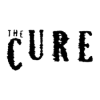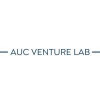CURE Company

Holding the hand of someone we love, grabbing things from the floor, taking a cup of water… They seem so simple and obvious to us. We do not think about the complicated mechanisms behind our movements. Yet, more than 30 million people around the world do not have that luxury; they are amputees. Most amputees in the MENA region cannot afford existing prosthetic limbs because of high price and the non-availability. This majority is dependent on others and many of them have lost hope, happiness, and self-confidence since this traumatic limb amputation is a catastrophic injury and an irreversible act, which is sudden and emotionally devastating for the amputees. Most of these amputees do not have any prosthetics, some of them have hooks or esthetic prosthetics and few of them can afford robotic prosthetics. In my country, Tunisia, at least 1000 people lack their upper limbs. Some lost them due to accidents or diseases and others were born without them. Only 10% of them can afford prosthetics, which are not locally made and so many of them wait for years to get a touch of hope. At CURE, we work on developing and producing affordable prosthetic hands with 3D printing technology using an ecological raw material extracted from corn, which makes the device lightweight and recyclable. People get a discount if they bring their old prosthetics to be recycled whenever their morphologies change. Our prosthetics are myoelectric so they work using muscle signals and there is no need for any surgical intervention to implement the prosthetic. They are also customizable so users can choose their favorite colors or design; the prosthetic can also match their skin color. Children can have their favorite super hero designs in, their prosthetics, which make them feel special and gives them courage. Added to that, we are disrupting the rehabilitation services that are based only on boring physical exercises that cannot inspire or motivate patients to take their bodies to the next level of rehabilitation. As an innovative startup, we have a new vision of rehabilitation based on virtual and augmented reality. Using the gamification method, we will introduce exercises in the form of games and challenges and even some create games that include a patient’s hobbies. For instance, someone who used to be a tennis player would be able to play a virtual tennis game. This virtual rehabilitation is be entertaining, thus motivating the patient. It is shorter than the classic one, less stressful and will allow the client to feels more actively involved in the desensitization. Virtual rehabilitation can be performed in the patient's home and monitored at a distance (becoming tele rehabilitation) and it provides objective outcome measures of therapy efficacy (limb velocity, range of movement, error rates, game scores..). The computer running the simulation transparently stores these data. A demo : https://www.youtube.com/watch?v=ldruOI67Ovw
Industry:
Healthcare, DeepTech
Headquarters:
Sousse, Sousse, Tunisia
Founded Date:
2017
Employees Number:
1-10
Register and Claim Ownership

